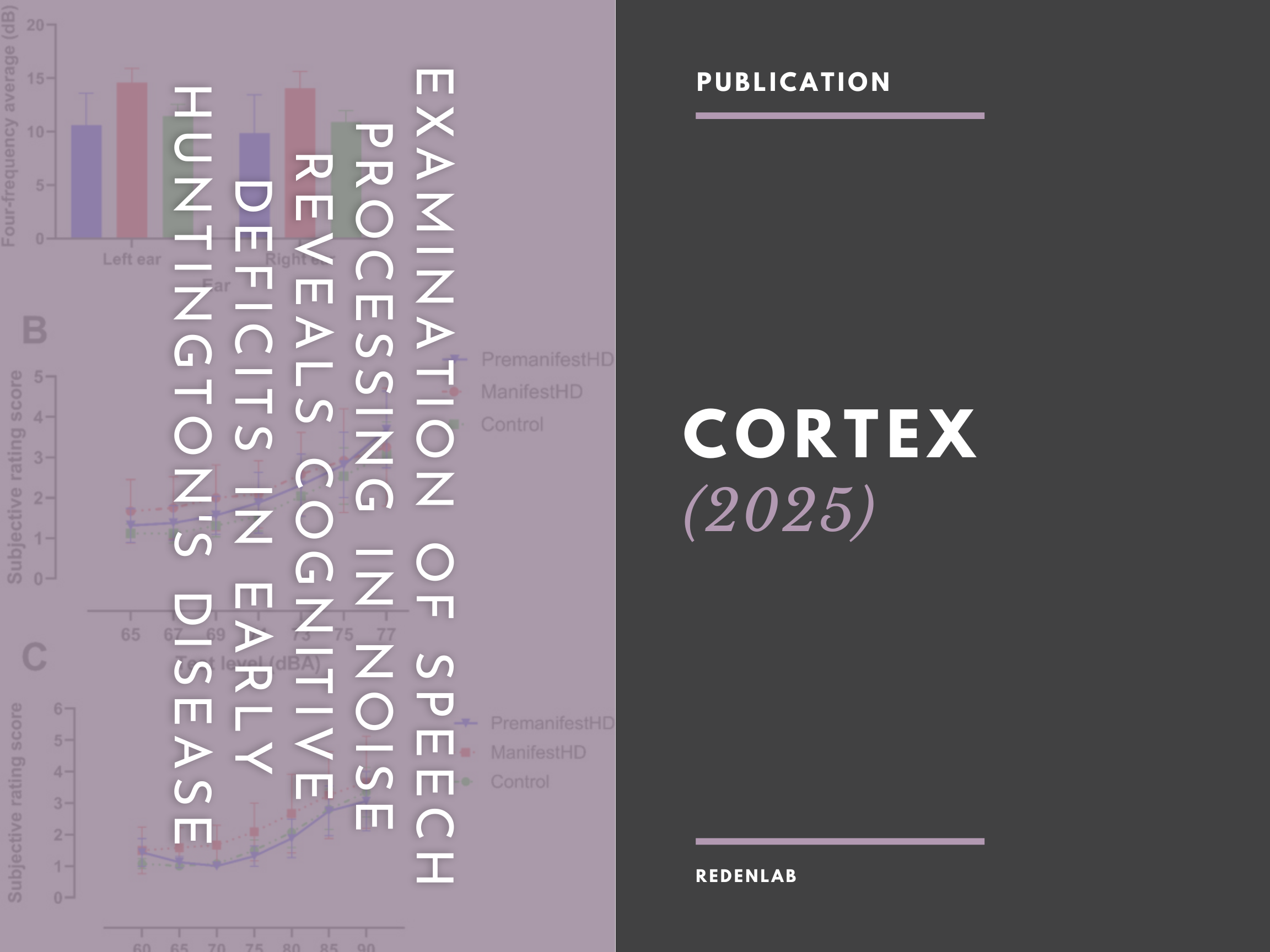Examination of speech processing in noise reveals cognitive deficits in early Huntington’s disease

Struggling to follow a conversation in noise could be more than just annoying, it might signal early cognitive issues in Huntington’s disease.
Everyday life is noisy: cafés, busy streets, overlapping conversations. For most of us, tuning in to a voice in the crowd is second nature. But for people with Huntington’s Disease, these noisy moments may reveal much more than a fleeting frustration. They could uncover early signs of cognitive decline.
A new study reveals that people with Huntington’s Disease, even before obvious symptoms appear, find it harder to process speech in noisy environments. That difficulty could reflect subtle but important changes in brain function.
Published in Cortex, the research was led by teams from the University of Melbourne, Monash University, Redenlab, and the University of Tübingen. It examined how well people with Huntington’s Disease understand speech when there is competing background noise. These are situations we all encounter daily, like chatting in a busy café or crowded room.
The study involved participants with Manifest Huntington’s Disease, Premanifest Huntington’s Disease, and healthy controls. Using everyday words and sentences masked by different types of noise, the researchers simulated real-world listening scenarios ranging from simple background sounds to more cognitively demanding noise, such as competing speakers.
The results showed that individuals with Manifest Huntington’s Disease had significant trouble understanding speech across most noisy conditions. Even those with Premanifest Huntington’s Disease, who have not yet developed motor symptoms, had difficulties in some of the more attentionally demanding noise conditions.
The team also explored whether spatial audio cues, such as the direction a voice is coming from, could help participants separate speech from noise. While spatial cues provided some benefit for most groups, those with more advanced disease struggled to use these cues effectively when the competing noise came from a single voice.
Importantly, a logistic regression model built from speech performance data was able to distinguish between healthy controls and those with Premanifest Huntington’s Disease with nearly 88 percent accuracy. This suggests that speech-in-noise processing could serve as a sensitive and non-invasive marker of early cognitive changes.
As researchers continue to look for ways to detect Huntington’s Disease earlier and monitor its progression more effectively, speech may offer a promising new window into how the brain is functioning before more visible symptoms take hold.
